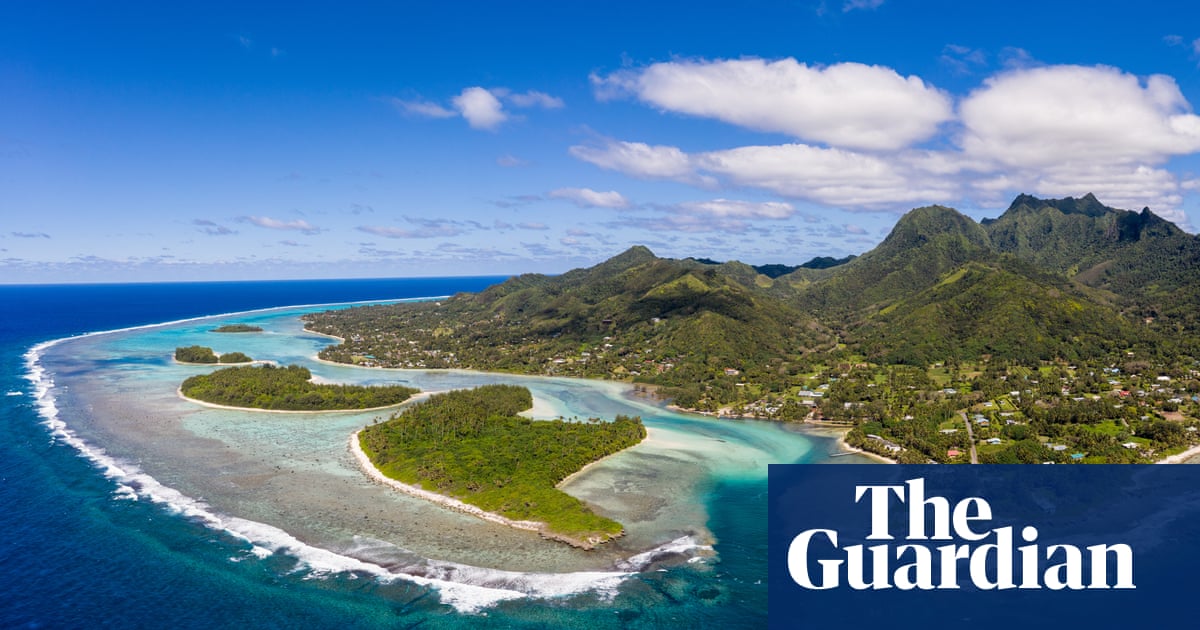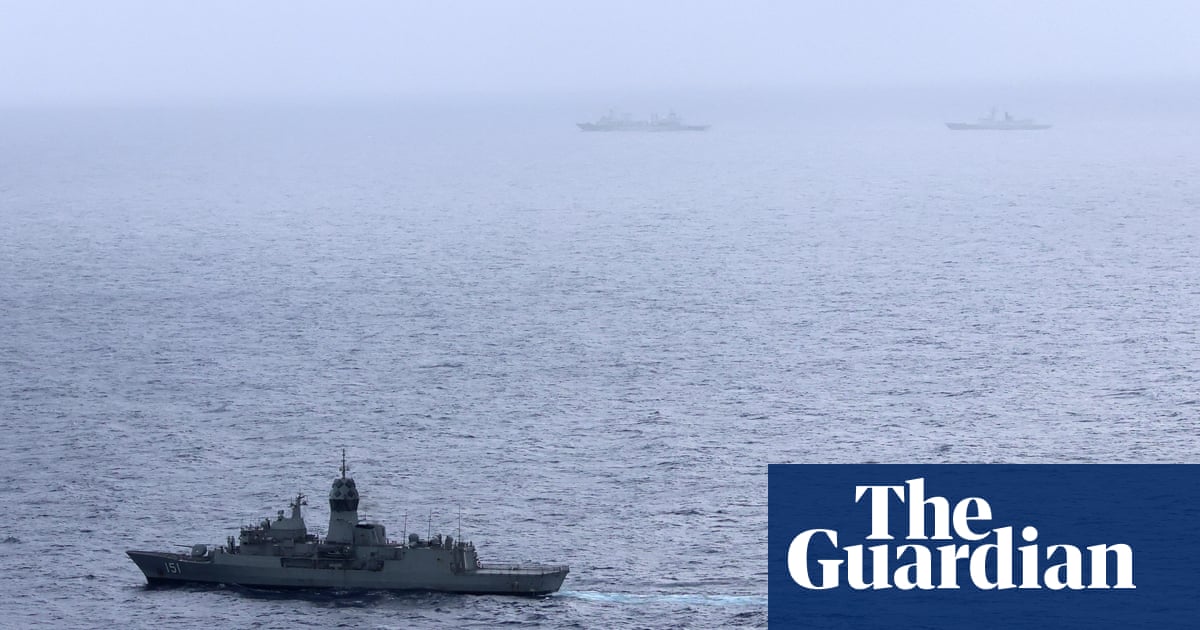
A deal has been gavelled
We have a deal. The COP29 President Mukhtar Babayev has just brought down his gavel on a financial deal which no one is very happy with but which is, nonetheless, a deal.

As Babayev gavelled through the deal there was long standing applause, cheering, whistling. negotiators embracing.
Key events Show key events only Please turn on JavaScript to use this feature

Adam Morton
Some developed countries have made barely veiled swipes at Saudi Arabia over its obstruction of the text including an explicit restatement of some of what was agreed in Dubai last year – particularly, goals of transitioning away from fossil fuels, tripling renewable energy by 2030 and doubling energy efficiency by the same year.
Instead, the text just refers to paragraph 28, in which the transition commitment was made, calling on countries “to contribute to the global efforts referred to in paragraph 28”.
Speaking on behalf of the umbrella group of developed countries, Australia said it was disappointed that some countries had “stalled or stymied discussion” on those issues. But they said that countries were accelerating towards the global goal of net zero emissions and moving to capture the economic opportunities of renewable energy to create jobs for their communities.
Switzerland said Cop29 fell short on “meaningful ambition” and it regretted the text “had been watered down by some”. “We can and must do better next year,” they said.

Adam Morton
Pakistan says the decisions reflected the spirit of multilateralism, but it would leave Baku “with mixed feelings and a heavy heart” as the goals put forward by demonstrated countries do not match needs of developing countries.
Its representative said it had faced devastating floods and heatwaves and melting glaciers, and too much climate finance was being given as loans. It meant the climate crisis was “converting into a debt crisis”.
“We demand climate justice. It isn‘t charity. It’s a moral obligation.”

Damian Carrington
Harjeet Singh, a highly regarded campaigner at Cops and at the Fossil Fuel Non-Proliferation Treaty Initiative, says the fight will have to go on:
“At Cop29, developed nations once again coerced developing countries into accepting a financial deal woefully inadequate to address the gravity of our global climate crisis. The deal fails to provide the critical support required for developing countries to transition swiftly from fossil fuels to clean, renewable energy systems, or to prepare for the devastating impacts of the climate crisis, leaving them severely under-resourced.
“We must persist in our fight, demanding a significant increase in financing and holding developed countries to account for delivering real, impactful actions.”
Dharna Noor
After Babayev gavelled through the global stocktake, a negotiator from Chile registered his disapproval.
“In our view the text that we have in front of us lacks a number of very important elements,” he said, arguing it does not reflect the tools needed to inform climate plans (NDCs). “In our view the text does not enjoy consensus,” he said.
A Fiji negotiator said that in negotiations around the global stocktake, his nation has been asked to “ignore our needs” and “step backward.”
A Canadian minister also registered his disappointment, as did an Australian negotiator.

Damian Carrington
UN secretary general António Guterres, who at the start of Cop29 said the climate crisis had made 2024 “a masterclass in human destruction”, expressed disappointment:
“Developing countries swamped by debt, pummelled by disasters, and left behind in the renewables revolution, are in desperate need of funds. I had hoped for a more ambitious outcome – but this agreement provides a base on which to build. It must be honoured in full and on time. Commitments must quickly become cash. All countries must come together to ensure the top-end of this new goal is met.”
Simon Stiell, the UN’s top climate official, said: “It has been a difficult journey, but we’ve delivered a deal. This new finance goal is an insurance policy for humanity, amid worsening climate impacts hitting every country. But it only works if the premiums are paid in full, and on time. No country got everything they wanted, and we leave Baku with a mountain of work still to do. We need to redouble our efforts on the road to Belém [Cop30 in 2025].”
Former US vice-president Al Gore, who has been a prominent voice on climate matters for decades, has weighed in:
While the agreement reached at Cop29 avoids immediate failure, it is far from a success. On the key issues like climate finance and the transition away from fossil fuels, this is — yet again — the bare minimum.
We cannot continue to rely on last-minute half measures. Leaders today shirk their responsibility by focusing on long-term, aspirational goals that extend far beyond their own terms in office. To meet the challenge of our time, we need real action at the scale of months and years, not decades and quarter-centuries.
This experience in Baku illuminates deeper flaws in the Cop process, including the outsized influence of fossil fuel interests that has hobbled this process since its inception. The Kingdom of Saudi Arabia has been particularly obstructive. Putting the future of humanity at severe risk in order to make more money is truly disgraceful behaviour. Reforming this process so that the polluters are not in effective control must be a priority.
On climate finance, our primary task in the coming years must be to not only fulfil and build upon the financial commitments agreed to at Cop29, but to unleash even larger flows of affordable and fair private capital for developing countries.
Ultimately, coming out of Cop29, we must transform disappointment into determination. We can solve the climate crisis. Whether we do so in time to meet the goals of the Paris Agreement will depend on what comes next.

Damian Carrington
Wopke Hoekstra, the EU commissioner for climate action, has a far more positive take on the Cop29 deal, and it is received with zero applause, unlike the angry speeches from India and Nigeria.
“We all know how very, very difficult this was, and yet we do feel that the result of today is actually exceptionally important. We are living in a time of truly challenging geopolitics so seeing a deal truly is exceptional.”
“In my view, Cop29 will be remembered as a start of a new era for climate finance and we have worked hard with all of you to ensure that there is significantly more money on the table. We’re tripling the $100bn goal, and we feel it is ambitious, it is needed, it is realistic and it is achievable.”
Hoekstra also alludes to the row over whether countries like China and Saudi Arabia should contribute to climate finance, despite being classed as developing in UN climate talks:
“It is also a matter of fairness and of importance to us that all those with the ability to do so should contribute, and therefore it is good that we enlarge the contributor base on a voluntary basis.”
On the lack of explicit mention of last year’s commitment to “transition away from fossil fuels, he says: “It is less than what we have liked, but it is better than we feared.”
Babayev has gavelled through the mitigation and implementation work programme to relatively feeble applause. Meanwhile, reaction to the finance deal continues to pour in.
“The gap between this climate finance commitment and what’s needed is so big you could see it from space,” said Ben Goloff, senior climate campaigner at the Center for Biological Diversity. “It’s richly ironic that the United States and other wealthy, polluting nations can come up with funds for almost anything except helping poor countries cope with the climate chaos they’ve caused. Kicking the deadline to 2035 adds insult to the injury of a paltry $300bn, a fraction of the trillions needed. The Biden administration should be going out with at least a signal of its moral climate commitment, not copping out ahead of the Trump 2.0 disaster.”
Malawi’s negotiator said that for his country and other members of the Least Developed Countries bloc, the finance goal is “not ambitious.”
Rich nations have not committed enough public finance to the developing world, he said: “The figure is far less than what we need.” He said the text also does not include support for loss and damage. “As such we also want to register our reservation to accept this proposal as it stands,” he added.
The UK’s energy secretary, Ed Miliband, who has seemingly been everywhere at these talks, said:
This is a critical eleventh hour deal at the eleventh hour for the climate. It is not everything we or others wanted but is a step forward for us all. It’s a deal that will drive forward the clean energy transition which is essential for jobs and growth in Britain and for protecting us all against the worsening climate crisis.
“The new finance goal rightly reflects the importance of going beyond traditional donors like Britain, and the role of countries like China in helping those on the frontline of this crisis. If this finance is used in the right way, it could cut the equivalent emissions of one billion cars and could protect nearly a billion people from the impacts of climate change.
Today’s agreement sends the signal that the clean energy transition is unstoppable. It is the biggest economic opportunity of the 21st century and through our championing of it we can help crowd in private investment.
There is much more work to do if we are to keep 1.5C within reach and prevent climate catastrophe. We’ve pushed for ambition in Baku and have restored the UK back to a position of global climate leadership. We will keep up the pace, working with other countries before the world meets again in Brazil for Cop30. Only by doing this can we keep future generations safe and reap the benefits of the clean energy revolution.

Damian Carrington
More reaction:
Tina Stege, climate envoy for the highly vulnerable Marshall Islands, said: “We came in good faith, with the safety of our communities and the well-being of the world at heart. Yet, we have seen the very worst of political opportunism here at this COP, playing games with the lives of the world’s most vulnerable people.
Fossil fuel interests have been determined to block progress and undermine the multilateral goals we’ve worked to build. This can never be allowed to happen.
Despite the barriers, we’ve fought hard and secured something for our communities. We are leaving with a small portion [$300bn] of the funding climate-vulnerable countries urgently need. It isn’t nearly enough, but it’s a start.”
“Countries seem to have forgotten the reason why we are all here. It is to save lives. It is to save lives. We have to work hard to rebuild trust in this vital process.
Avinash Persaud, an expert on climate finance at the Inter-American Development Bank, takes a realistic view: “It was hard fought over, but at $300bn per year led by developed to developing countries, we have arrived at the boundary between what is politically achievable today in developed countries and what would make a difference in developing countries.”

Adam Morton
Here comes Nigeria, just as strong as the countries before it.
Its delegation representative said the gavelling through of the climate finance goal was “an insult to what the convention says” and $300bn a year by 2035 was a “joke”.

She noted that developed countries had the largest share of current and historic emissions and had agreed they had a responsibility to act, and that meant climate finance.
“I think we should rethink of it. We have a right as countries to decide if we accept this or not. I’m saying we do not accept this.
“It’s 3am and we’re going to clap our hands and say this is what we’re going to do. I don’t think so.”
Again, the president said the objection would be noted.
Dharna Noor
In an impassioned speech, Bolivia’s negotiator says that the climate finance text just gavelled through “enshrines climate injustice.”
The deal “consolidates an unfair system” where developed countries do not comply with their responsibilities to the global south, he said.
Those rich nations, he said, leave developing countries with “very limited resources” to meet their climate goals, he said. And though they do not provide sufficient climate finance, they do spend big to produce fossil fuels and make “massive business deals.”
He said global north countries focus on human rights abuses in their regions but inflate their military budgets and fund violence, including “genocide in Palestine.”
The crowd applauded wildly.
Babayev said their dissent will be noted in the report.
More reaction from the NGOs. Mostly fairly gloomy.
Mike Childs, head of policy at the UK Friends of Earth, gives credit to the UK delegation for playing a productive role.
“But these latest international talks failed to solve the question of climate finance - instead they have again kicked the can down the road. Developing countries are being hammered by climate extremes now, predominantly fuelled by the current and historic polluting activities of rich nations, like the UK. The problem of how to provide the trillions needed to support the countries being hardest hit by a crisis they’re least responsible for remains. Without this investment, which must be unlocked by wealthy countries stepping up to do their fair share, there can be no climate justice.
Friederike Röder, Vice President, Global Policy and Advocacy, Global Citizen
“COP29 has ended with an agreement on climate finance that fails to rise to the urgency of addressing the global climate crisis.
“Today, it is clear that the final COP29 agreement on the NCQG falls woefully short of meeting the pressing climate challenges of today, let alone the escalating challenges of tomorrow.
“However, we welcome the agreement on a Roadmap to Belém, which sparks a faint glimmer of hope. This must become a catalyst for real, transformative action
Accusations that the deal has been 'stage managed'

Adam Morton
India has responded furiously to the climate finance goal being quickly gavelled through by the president, saying it is a “paltry sum” and it was not given the opportunity to express its strong opposition to it.
In a fiery address, Chandni Raina, the Indian representative said: “India opposes the adoption of this document and please take note of what we have just said from the floor of this room. We seek a much higher ambition from the developed countries.”

“We had informed the president we had informed the secretariat that we wanted to make a statement prior to any decision on the adoption but however - and it’s for everyone to see – this has been stage managed and we are extremely disappointed with this incident.
“We’ve seen what you have done … gavelling and trying to ignore parties from speaking does not behove the UN system and we would want you to hear us … we absolutely object to this unfair means of adoption.”
She was scathing of developed countries for failing to act to address the climate crisis, and said they should agree to advance their net zero targets and become net negative soon after. She said there was a lack of trust in the system.
“Unfortunately, the paper on the NCQG does not inspire trust that we will come out of this grave problem of climate change.”
The president said India’s position would be noted, but the acceptance of the climate goal stands.
Mohamed Adow, at Power Shift Africa and a key voice at Cops, says the Cop29 finance deal is a “disaster” and “betrayal” of people and planet.

“This Cop has been a disaster for the developing world. It’s a betrayal of both people and planet, by wealthy countries who claim to take climate change seriously.
“Rich countries have promised to “mobilise” some funds in the future, rather than provide them now. The cheque is in the mail. But lives and livelihoods in vulnerable countries are being lost now.
“The rich world staged a great escape in Baku. With no real money on the table, and vague and unaccountable promises of funds to be mobilised, they are trying to shirk their climate finance obligations. Leaving the world without the resources needed to avert climate catastrophe.
“This has been a shamefully led summit by Azerbaijan which deserves to be a global embarrassment for the wealthy countries and the Cop president that facilitated them to dodge their obligations.
Dharna Noor
The first to speak after the gavelling through of the finance goal, just before the representative from India, was a negotiator for Cuba. He said he “profoundly regrets the insufficient outcomes” of the finance negotiations.
The “scope of the decision,” he said, shows developed countries’ desire to “renounce” their responsibility to developing nations.
That responsibility is legally binding, he said.
The finance goal does not rectify the “continued dynamic of environmental colonialism,” he went on. And he said it provides “no guarantees of sufficient support” for developing countries’ climate action plans (NDCs)
His country has a “firm commitment to continue dialogue” on this issue, he said. And about rich countries, he said, “their climate debt must be paid.”
He spoke two gong hits over his allotted time. Many stood, cheered, whooped and yelled in response.
The Indian representative is speaking now and is absolutely furious. She accuses the presidency of gavelling through the deal over people’s objections. She has called the deal ‘stage-managed’ to whoops and hollers from other representatives.










 English (US)
English (US)